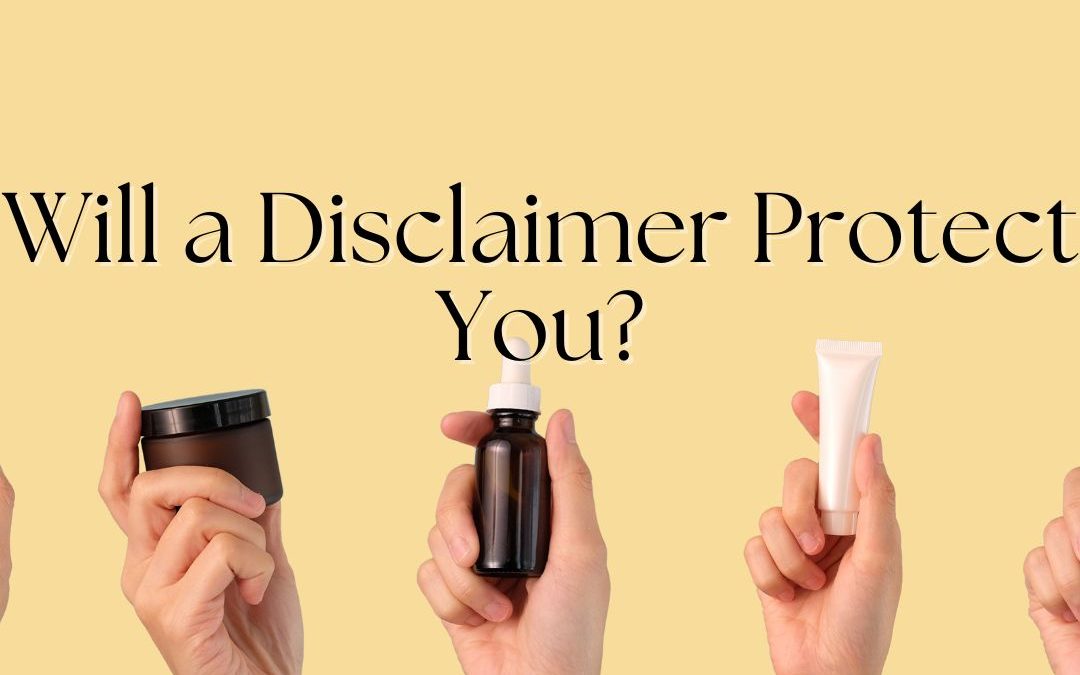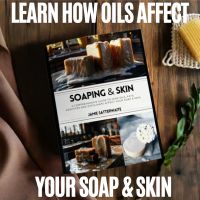This post may contain affiliate links, to learn more about them, check out our Disclosure.
As a skincare creator or business owner, you’ve likely wondered, “Will a disclaimer protect me with my skincare line?” While disclaimers are a common feature on many product labels, they may not fully protect you from liability. In this blog post, we’ll explore the role of disclaimers, their limitations, and how you can ensure your skincare products are both safe and legally compliant.
What Is a Disclaimer?
A disclaimer is a statement intended to limit your legal liability. In the context of skincare products, disclaimers are often used to:
- Provide information about potential allergies or sensitivities.
- Indicate that the product is not intended to diagnose, treat, cure, or prevent any disease (common for cosmetics).
- Warn users about proper usage and storage.
For example, a common disclaimer might read: “For external use only. Discontinue use if irritation occurs. Consult a healthcare provider before use if you are pregnant or have sensitive skin.”
Can a Disclaimer Protect You?
While disclaimers can serve as an added layer of transparency, they do not absolve you of legal responsibility. Here’s why:
- Product Safety Laws In many countries, including the U.S. (under the FDA) and the EU, skincare products are regulated to ensure safety. If your product causes harm due to negligence (e.g., contamination, mislabeling, or improper testing), a disclaimer won’t shield you from liability.Reference: FDA Cosmetics Laws and Regulations
Reference: EU Cosmetics Regulation (EC) No 1223/2009 - Implied Warranty By selling a product, you’re implicitly guaranteeing that it is safe for its intended use. A disclaimer cannot override this legal obligation.Reference: Uniform Commercial Code – Implied Warranty
- Consumer Protection Laws Misleading claims or failure to disclose risks can lead to lawsuits, regardless of whether you included a disclaimer. For instance, labeling a product as “hypoallergenic” without substantiating evidence can lead to legal issues.Reference: FTC Guidelines for Advertising Claims
Limitations of Disclaimers
Here are some key limitations of relying solely on disclaimers:
- Cannot replace proper testing: Skincare products must undergo stability, microbiological, and allergen testing to ensure safety.
- Do not prevent lawsuits: Even with disclaimers, consumers can sue if they believe your product caused harm.
- May not be enforceable: In some jurisdictions, disclaimers that attempt to waive liability for harm caused by negligence are not legally binding.Reference: American Bar Association – Enforceability of Disclaimers
Steps to Protect Your Skincare Business
Instead of relying solely on disclaimers, take these proactive steps to ensure your skincare products and business practices are legally compliant and safe:
- Understand Regulatory Requirements Familiarize yourself with the skincare regulations in your country. In the U.S., the FDA oversees cosmetics, while in the EU, the Cosmetics Regulation (EC) No 1223/2009 applies.Reference: FDA Cosmetics Overview
Reference: EU Cosmetics Regulation Explained - Conduct Proper Testing
- Stability testing: Ensures your product remains effective over time.
- Microbial testing: Confirms the product is free from harmful bacteria and mold.
- Patch testing: Reduces the risk of allergic reactions.
- Use Accurate Labeling
- List all ingredients in descending order of concentration.
- Include appropriate warnings and usage instructions.
- Avoid unsubstantiated claims like “all-natural” or “hypoallergenic.”
- Obtain Product Liability Insurance Insurance can provide financial protection in case of lawsuits, covering legal fees and damages.Reference: Small Business Administration – Product Liability Insurance
- Be Transparent Clearly communicate the intended use, benefits, and potential risks of your product. Transparency builds trust and reduces misunderstandings.
When to Use a Disclaimer
While disclaimers alone won’t protect you from legal issues, they are still an important part of your product labeling. Use them to:
- Warn consumers about potential allergens (e.g., “Contains nut-derived ingredients”).
- Indicate appropriate usage (e.g., “Avoid contact with eyes”).
- Comply with regulations for cosmetic products (e.g., “This product is not intended to diagnose, treat, cure, or prevent any disease”).
Example of a Comprehensive Disclaimer
“For external use only. Avoid contact with eyes. Discontinue use if irritation or redness occurs. Keep out of reach of children. This product is not intended to diagnose, treat, cure, or prevent any disease. Store in a cool, dry place. Patch test recommended before use.”
The Bottom Line
A disclaimer can enhance transparency and provide important usage information, but it’s not a substitute for ensuring your products are safe, tested, and compliant with regulations. By prioritizing product safety, accurate labeling, and proactive risk management, you can protect your business and build trust with your customers.
Have questions about skincare product labeling or regulations? Let us know in the comments below!
Have questions about skin care product labeling check out our post on How to Label Your Homemade Skin Care Products.



